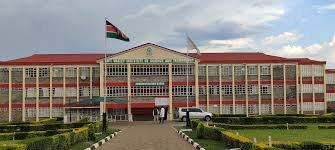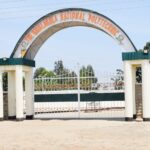The Rift Valley Institute of Science and Technology (RVIST) is one of Kenya’s leading technical and vocational institutions, located along the Nakuru-Njoro Road. As an ISO 9001:2015-certified institution, RVIST prides itself on offering industry-relevant programs designed to prepare students for dynamic careers.
In this guide, we provide a detailed breakdown of the courses available at RVIST in 2025, covering their duration, intake periods, and the latest fee structure. Whether you’re a prospective student or a parent exploring educational opportunities, this guide will serve as your go-to resource.
Why Choose RVIST?
RVIST has carved out a reputation for quality technical education. The institution is committed to inclusivity, offering equal opportunities regardless of gender or disability. Its programs are flexible, with full-time, part-time, and school-based (in-service) options, catering to diverse student needs.
RVIST also supports Recognition of Prior Learning (RPL), allowing individuals with relevant work experience to receive certification without formal classroom training.
Comprehensive List of RVIST Courses
Below is a categorized breakdown of all the programs offered at RVIST, along with their intake schedules and durations.
1. Electrical and Electronics Department
- Artisan in Electrical Installation – 1 Year (September Intake)
- Higher Diploma in Electrical Engineering – 2 Years (May Intake)
- Craft Certificate in Electrical & Electronics (Power Option) – 1 Year per Module (May/September Intake)
- Diploma in Electrical & Electronics Engineering (Power and Telecommunication options) – 1 Year per Module (May/September Intake)
2. Hospitality and Tourism Studies Department
- Artisan Courses: Housekeeping, Garment Making, Food and Beverages (1 Year, May/September Intake)
- Diplomas: Tourism Management, Catering & Accommodation, Food and Beverages Management (1 Year per Module, May/September Intake)
- Higher National Diploma in Food and Beverage – 2 Years (May/September Intake)
3. Agriculture Education and Extension Department
- National Vocational Certificate in Modern Agribusiness Methods (Levels 1 & 2) – 1 Year (May/September Intake)
- Diploma in Agriculture, Sustainable Agriculture, and Entrepreneurial Agriculture – 1 Year per Module (May/September Intake)
4. Agricultural and Mechanical Engineering Department
- Artisan Courses: Welding and Fabrication, Automotive Engineering (1 Year, May/September Intake)
- Diplomas: Automotive Engineering, Mechanical Engineering, Agricultural Engineering (1 Year per Module, May/September Intake)
5. ICT Department
- Diplomas: Information Studies, Computer Studies, ICT (1 Year per Module, May/September Intake)
- Short Courses: ICDL (4 Months), Computer Repair and Maintenance (1 Month)
6. Building and Civil Engineering Department
- Craft Certificates: Masonry, Carpentry, Plumbing, and Building Services (2 Years, May Intake)
- Diplomas: Civil Engineering, Building Technology, Architecture (1 Year per Module, September Intake)
7. Health and Applied Sciences Department
- Diplomas: Medical Laboratory Technology, Pharmaceutical Technology, Applied Biology (3 Years, May Intake)
- Craft Certificates: Science Laboratory Technology, Petroleum Geo-Science (1 Year per Module, May/September Intake)
8. Liberal Studies Department
- Certificates and Diplomas: Social Work, Counseling Psychology, Community Development (6 Months per Module, Multiple Intakes)
9. Business Studies Department
- Diplomas: Business Management, Human Resource, Accountancy, Banking and Finance (6 Months per Module, May/September Intake)
- Professional Courses: CPA/CPS, Certified Credit Professionals (6 Months, May Intake)
10. Competency-Based Education and Training (CBET) Courses
- Courses: Dairy Farm Management, Horticultural Production, Electrical Installation, Baking Technology, and more (3–12 Months, Various Intakes)
Fee Structure for 2025
RVIST’s annual fees are structured to be affordable while maintaining high educational standards.
Annual Fees
- Tuition: Kshs. 4,000
- Electricity, Water & Conservancy: Kshs. 4,800
- L.T&T: Kshs. 3,970
- Personnel Emoluments: Kshs. 4,200
- R.M.I (Repairs, Maintenance, and Improvement): Kshs. 10,500
Total Annual Fees: Kshs. 39,719 (for specific programs, fees may reach up to Kshs. 67,189)
Other Fees for New Students
- Registration Fee: Kshs. 2,000
- Student ID: Kshs. 500
- Student Union Fee: Kshs. 900
Total for New Students: Kshs. 3,400
Note:
- Fees must be deposited into the designated RVIST accounts at Co-operative Bank or Kenya Commercial Bank.
- Fees are non-refundable.
- RVIST reserves the right to revise fees during the course of study.
Application Process
Prospective students can apply by sending their application to:
The Principal
RVIST, P.O. Box 7182, Nakuru, Kenya.
Applicants should enclose:
- Copies of ID card, birth certificate, and academic certificates.
- A non-refundable application fee of Kshs. 500, deposited into RVIST’s account at Co-operative Bank (Account No. 01129087643400) or KCB (Account No. 1101786221).
Additional Information
- Limited accommodation is available at the main campus.
- RVIST has satellite campuses in Nakuru Town (Dimu House, adjacent to KRA offices) and Kericho Town (Ndege Chai House).





